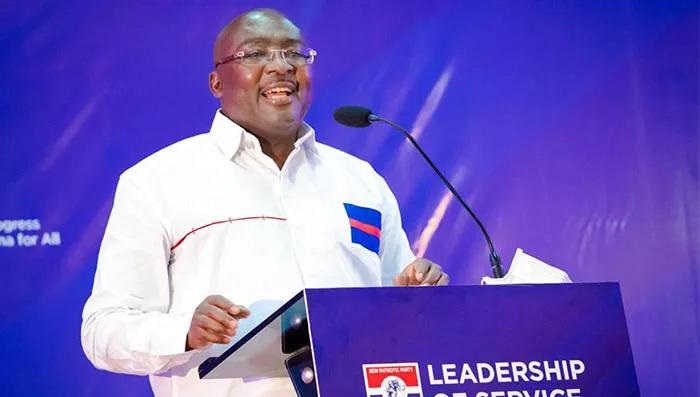
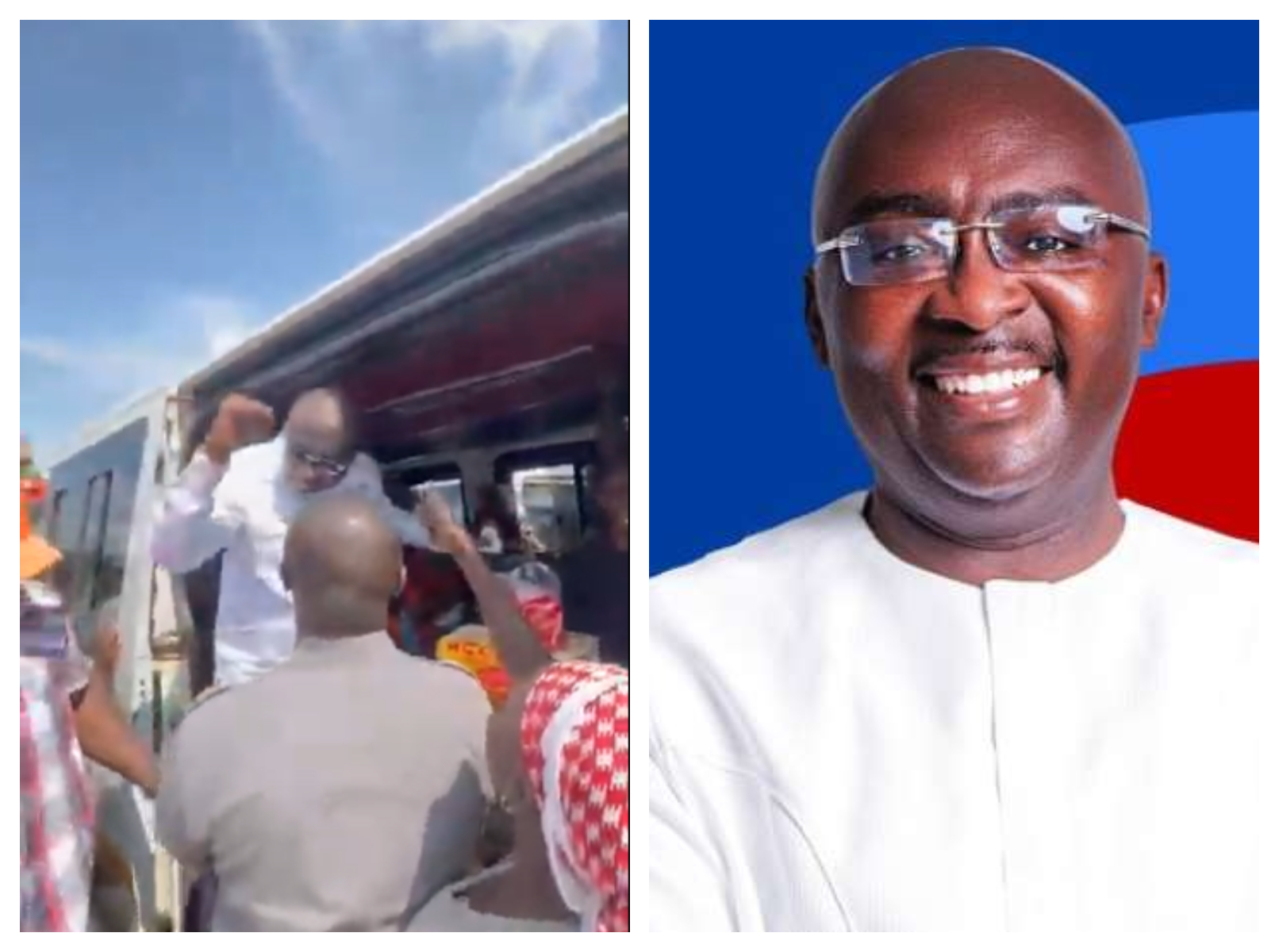
Vice President and New Patriotic Party (NPP) flagbearer Dr. Mahamudu Bawumia continues his campaign tour of the Greater Accra Region ahead of the 2024 general elections.
On a campaign stop in the Okakoi South Constituency, the flagbearer hopped into a trotro, a common public transport vehicle in Ghana, to engage with citizens.
The move surprised passengers and commuters alike, as Bawumia used the opportunity to connect with the everyday struggles of Ghanaians, and trumpet his 'bold solutions' agenda.
He highlighted the government's efforts in digitisation and infrastructure while assuring commuters of plans to reduce transportation costs and improve services. His direct interaction showcased his commitment to addressing public concerns about the economy.
Bawumia touts his achievements
Dr Bawumia highlighted his achievements as Vice President, describing himself as a “brand new tear rubber” leader ready to address the nation's challenges with a fresh perspective.
Speaking at the Kasoa Odekro Palace during a stakeholder engagement, Dr Bawumia emphasised his transformative approach to leadership.
“I have implemented 33 different policies as Vice President. The former President cannot point to one. He does not have one as Vice President. There is none. I can point to them,” Dr Bawumia stated.
He further drew a comparison between his leadership and that of Mahama, saying, “I am a Vice President so if you vote for me, you will get a brand-new tear rubber President. When you vote for the former president, you will get home used secondhand President.”
NPP's manifesto for 2024 elections
Dr. Bawumia launched his manifesto in August and stressed his commitment to implementing bold solutions aimed at business and job growth.
He outlined a series of business-friendly policies, including a favourable tax regime and direct incentives designed to support business expansion.
The key incentives proposed by Dr. Bawumia include:
a. Offering Investment Tax Credits (ITC) to incentivise Ghanaian start-ups in strategic sectors during their first three years of operation.
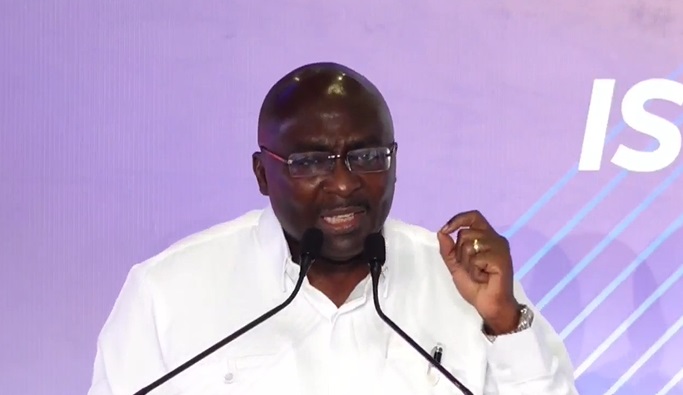
b. Introducing a Flat Rate for all importers to bring predictability and stability to the pricing of imported goods.
c. Harmonising port charges to align with those of competing regional ports, particularly in Togo, ensuring that duties at Ghanaian ports are the same or lower.
d. Utilising the government’s purchasing power to stimulate industrial expansion and business growth by implementing a “Buy Ghana First” policy, where public sector procurement prioritises locally produced goods and services.

e. Reforming electricity tariffs to establish a structure where commercial rates are equal to or lower than residential rates, ensuring affordable power for industries and businesses.
f. Establishing an SME Bank to address the specific financing needs of small and medium enterprises, which employ over 80% of Ghanaians.
g. Reforming the licensing regime for the small-scale mining sector, reducing the minerals export tax to 1% to curb gold smuggling, and establishing a Minerals Development Bank to finance viable local mineral projects, small-scale miners, and Ghanaian mining services firms.
h. Completing the digitalisation of land titling and registration, enabling property owners to use their assets as collateral to raise capital for business growth and expansion.
i. Creating Special Economic sones (Free sones) in collaboration with the private sector at major border towns such as Aflao, Paga, Elubo, Sampa, and Tatale to enhance economic activity, increase exports, reduce smuggling, and create jobs.
Read Full Story

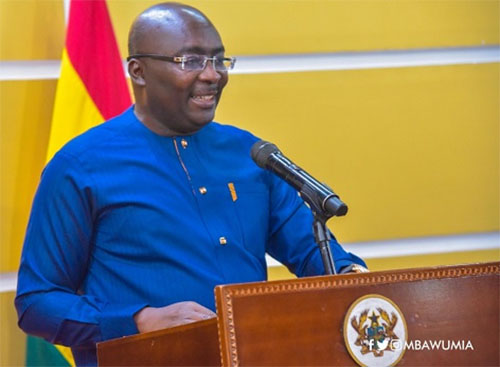
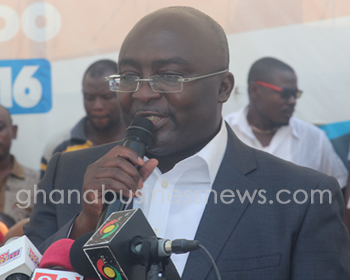




Facebook
Twitter
Pinterest
Instagram
Google+
YouTube
LinkedIn
RSS